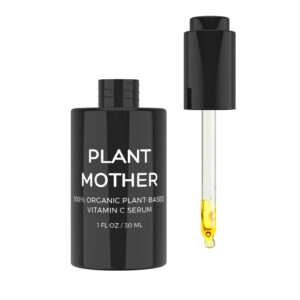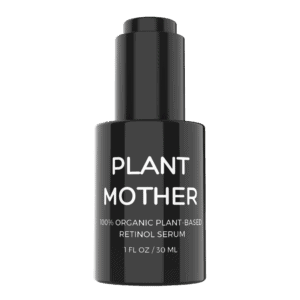What Is Clean Skincare? The Importance Of Healthy Ingredients

The Benefits Of Clean Skincare
In this blog post, we will talk about clean skincare and the harmful chemicals that exist in many of the products you use daily. You will learn what chemicals you should avoid, the regulations in the US vs the UK. We’ll also talk about the importance of using clean skincare products. Here is an overview of the topics covered:
- Importance of clean skincare and skin safety
- Skincare chemicals to avoid
- Sulfates
- Phthalates
- Synthetic colors
- Additional chemicals to avoid
- Talc
- Petroleum
- Fragrance
- Best Clean Skincare Options
- Regulation of clean skincare and beauty
- The Growth of The Beauty Industry
Importance of clean skincare and skin safety
The body’s largest organ is our skin. Therefore, it is extremely important that when using skincare and cosmetics we know what we are applying. Since we are applying products directly onto our skin, these ingredients can absorb easily into our bloodstream. That’s why using clean skincare with healthy, nutritious ingredients is extremely important.
Not all chemicals pose health issues. However, there are some that have been linked to hormonal imbalances, as well as neurological problems, and in some cases even cancer. Therefore, before buying a product it is extremely important to check the ingredients. Also determine if the product has been manufactured in the US or abroad. If possible, learn about the manufacturing facility and the origin and freshness of the ingredients. Always aim for organic ingredients, ideally 100% organic.
Skincare chemicals to avoid
Sulfates in skincare are used as cleansing agents. Commonly known as sodium lauryl sulfate, SLS is used to strip the skin of oils, remove makeup, and fight bacteria. However, there is a distinct difference between sodium lauryl sulfate and sodium laureth sulfate. Although they function similarly sodium lauryl sulfate can be more irritating to the skin. As it works to bind proteins on the skin’s surface, there is a higher risk of allergic reactions. It may not be a hazardous chemical but as an irritant it can be good to avoid if you have sensitive skin. Sulfates should not be used in clean skincare.
Phthalates have been linked to hormonal imbalances. They can disrupt reproductive and developmental processes. Pregnant women and breast-feeding mothers should avoid phthalates. Exposure can increase the risk of miscarriage and gestational diabetes, affect a developing fetus, and cause early puberty in young boys. Banned in the EU for being an endocrine disrupter, it still is a major ingredient in US beauty. Look out for DEP, DBP, and DEHP on labels. There’s no place for phthalates in clean skincare.
Synthetic colorants can have up to 50 different additives in one single product. Many of these additives are derived from coal tar, heavy metals, and petroleum. They all can clog pores and irritate skin. It is best to avoid color additives since many of its components are likely to absorb into your skin. Artificial colors like D&C Red #9 and D&C Red #40 have been known to cause acne breakouts. For those with sensitive skin artificial colors can cause reactions like rashes and inflamed skin. Therefore, you would be advised to do a patch test before applying it to your face. Make sure you understand the difference between rashes and skin purging.
Additional chemicals to avoid
Talc is a common ingredient in many powders, such as eye shadows, blushes, and foundation. Due to its silky texture, it allows easier application as well as absorbing oil. Although the percentage of talc differs in products, most powders contain up to 100%. Talc does not have direct effects on the skin, but if it were to get into your eye it can cause redness. If it gets into a cut or under your skin, it is likely to cause infection and inflammation. In recent years, talcum powder has also been linked to ovarian cancer and lung issues if frequently inhaled. Despite being restricted in the EU, the US still debates whether talc in makeup is carcinogenic. Therefore, it is best to avoid it as much as possible and aim for clean skincare and cosmetics made without any talc.
Petroleum is often used as a moisturizing agent for skincare products. Mineral oil, also known as refined petroleum jelly, does not cause any harm. However, when not refined properly (like most mineral oils in the US), it can be contaminated with harmful substances such as PAHs. PAHs are skin irritants and known carcinogens. Therefore, avoid products with petroleum paraffin, mineral oil, and paraffin oil.
Fragrances in products do not require companies to list all their ingredients. It is more of an umbrella term for all the different chemicals that compose the scent. Due to this, the unknown ingredients can consist of all sorts of toxins, from endocrine disruptors, carcinogens, to neurotoxins. Therefore, when looking for options it is best to avoid products with fragrances or perfumes. Always look for all natural ingredients that do not contain any fragrance. Ideally you want natural products that are sourced in the US, using organic, non-GMO farming.
Best CLEAN SKINCARE OPTIONS
When it comes to our skin, we must think logically. There are millions of various products that we can choose from, but how many of those are actually good for us? And how many of those are good for the planet?
Plant Mother is one of the companies that put customers health before profits. This skincare line is made of the highest quality natural ingredients, rich in nutritious vitamins and anti-oxidants. The products are 100% organic and plant-based. The packaging is recyclable, plastic-free, and environmentally friendly. It is a zero waste skincare.
Plant Mother’s hero products are Vitamin C and Retinol. Vitamin C comes from 100% plant-based materials. Vitamin C serum is not only essential for hydration and moisturization, it also helps with anti-aging, hyperpigmentation, and reducing sun damage. That means that it reduces the need for preservatives and synthetic chemicals. Additionally, it contains all-natural organic ingredients.
In addition to the Vitamin C serum, Plant Mother has a retinol serum that is also 100% plant-based and made of organic, non-GMO plants. This serum is great for stimulating collagen and speeding cell regeneration. It differs from other retinol serums because it’s manufactured in-house and is 100% made in US. With no pesticides or GMO fertilizers, Plant Mother’s Retinol serum is a great clean alternative to many lab-produced retinols.
Although it is not common to find 100% natural ingredients, we can be more conscious of which products we are buying and what ingredients to avoid. As consumers emphasize the importance of clean beauty ingredients, companies will begin to enact change. As well as concerns for FDA approval, with stricter regulations, companies can strip their products of harmful chemicals.
REGULATION OF CLEAN SKINCARE AND BEAUTY
The FDA defines a cosmetic as something applied to the body for cleansing, beautifying, promoting attractiveness, or altering one’s appearance. Therefore, skincare falls within this definition.
An average American woman uses around 12 personal care products a day containing almost 200 different chemicals. From an FDA report, only two of them govern cosmetic and skincare products.
Modern day cosmetics are composed of nearly 10,000 different chemicals. However, the Food and Drug Administration has restricted only 11! In comparison, the EU has almost 1,500 chemicals restricted from cosmetic and personal care production. Some of which the US has reviewed as safe to use in limited amounts. Clean skincare should not include these chemicals, not even in the smallest amounts!
Neither the US nor the EU require pre-market approval of beauty products. In the US, the FDA has a voluntary cosmetic reporting program. In this program manufacturers are encouraged (not mandatory) to register manufacturing sites, ingredients, and health-related concerns. While the EU requires a full report on product materials of the formula, manufacturing, safety assessment, and labeling.
Although the reporting program is voluntary, the FDA has the right to enforce any regulation. When prompted to do so, they will restrict or ban an ingredient, collect samples, mandate warning labels. They can also issue warning letters to distributors, seize illegal products, and help implement product recall.
Since the FDA does not require testing, it falls on the beauty companies to ensure the product is both safe and correctly labeled. Many argue that cosmetics should be taken more seriously in the eyes of the FDA. More than half of consumers support stricter restrictions on cosmetics. As a consumer, we can question whether the FDA is efficiently ensuring our safety. In comparison to food and drug regulations, why do we not regulate cosmetics the same way?
Now let us talk about how much money the beauty industry is worth. With an annual growth rate of 4.75 percent, the beauty industry is worth hundreds of billions. In 2020, the global industry was equal to $483 billion, and estimated to exceed $716 billion by 2025.
With the internet, e-commerce has surged to nearly 40% of US beauty sales. We no longer rely on stores with mass shipments like Target, Sephora, and Ulta. Even during the pandemic, companies had increases in sales because of exclusive online shopping. As the industry changed the way we shop, companies strictly rely on internet marketing.
Social media has played an important role in how companies reach their audiences, as well as the popularity of makeup artists and influencers. We see companies choosing to partner up with celebrities. Or even celebrities choosing to join the industry by creating their own beauty company. For instance, Kylie Jenner created an entire cosmetic company centered around lip kits, after speculation of getting lip fillers. Now she has an entire cosmetic company, in addition to Kylie’s skincare, Kylie Skin.
With that in mind, can we be sure that such companies are prioritizing clean skincare, our health and safety versus profit? The use of celebrities and influencers almost guarantees success. Many launches sell out in minutes, purely because people want to support their favorite actors or musicians. In marketing, the use of collaborations and sponsorships is extremely profitable. However, are these just effortless ways for cash grabs? Do celebrities care about making healthy clean skincare? Do they care about environment?
How can we determine which companies are looking out for our best interests? Well let’s think about companies that commit to clean, sustainable ingredients. Clean beauty has been growing in demand. As consumers are more conscious of harsh chemicals, many are prioritizing ingredients and quality of products over price.
MEDICAL DISCLAIMER
This content is for informational and educational purposes only. It is not intended to provide medical advice. Nor to take the place of such advice or treatment from a personal physician. All readers of this content are advised to consult their doctors or qualified health professionals regarding specific health questions. The publisher of this content does not take responsibility for possible health consequences of any person or persons reading or following the information in this educational content. All viewers of this content, especially those taking prescription or over-the-counter medications, should consult their physicians before beginning any nutrition, supplement, skincare product, or lifestyle program.
References:
- https://www.personalcarecouncil.org/u-s-and-eu-cosmetics-regulation/
- https://www.ewg.org/the-toxic-twelve-chemicals-and-contaminants-in-cosmetics
- https://www.webmd.com/beauty/features/harmful-chemicals-in-your-cosmetics
- https://www.safecosmetics.org/get-the-facts/chem-of-concern/
- https://www.theguardian.com/us-news/2019/may/23/phthalates-everyday-products-toxics-guide
- https://www.drugwatch.com/talcum-powder/is-talc-in-makeup-safe
- https://theplantmother.com/vegan-skincare/
- https://theplantmother.com/vegan-retinol/
- https://theplantmother.com/face-oil/
- https://theplantmother.com/face-serum/



